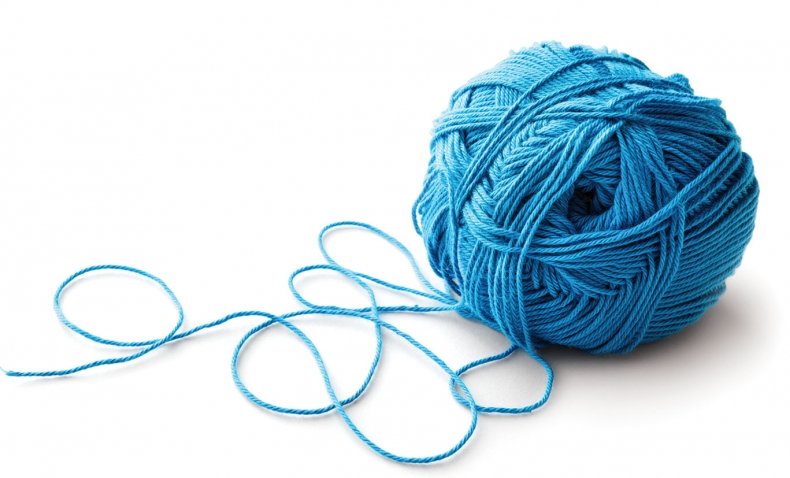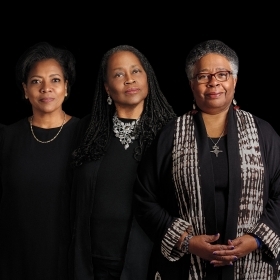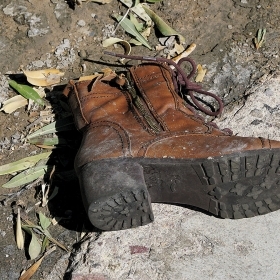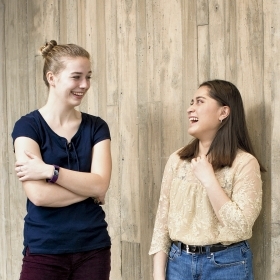This winter, I did something out of the ordinary for me: I picked up a set of needles and joined the ranks of knitters worldwide. I’ve never thought of myself as “crafty,” but I’m finding the soft wools in vibrant colors irresistible. I’ve made a cowl, a fleet of hats (including a striped one that makes me look straight out of Where’s Waldo?), a simple lace scarf, and a cozy lap blanket.
I’ve also made a whole lot of errors. I’ve ripped out, reknit, or completely started over zillions of times. Finally, I took a class called “How to Fix Your Mistakes 101” at a local yarn shop. One handy trick they taught was putting in a “lifeline.” You weave a different-colored yarn through each loop of an entire row of your knitted fabric. That way, if your simple mistake becomes what I call a “beginner’s conundrum,” you can rip out the fabric down to the lifeline, but that thread stops further damage. The needles go back into the loops, and off you go. Genius.
The whole time I was editing this issue, I was thinking about lifelines—literal and metaphoric—and started seeing them everywhere. I don’t mean that we are all making huge mistakes that need major corrections, but that there are lines of support that run through our experiences to help hold everything together.
The first one I spotted made me laugh out loud. I encountered it reading the unedited interviews for our cover story, “The Generations of Ethos.” (The reminiscences of five decades of Ethos activism and sisterhood are well worth your attention, incidentally.) This “lifeline” story was told to interviewer Hilary Hurd Anyaso ’93 by Dominique Hazzard ’12.
Dominique went on a field trip to a bog for one of her classes and fell in. I’ll let her pick up the tale: “You know, bog water’s acidic. My legs are starting to itch. … And so I’m in the bus, and I’m like, I can’t do this anymore. This is really irritating my legs. So I take off my pants. I put my poncho around me. And then when we get to campus, I’m like, how am I going to get off this bus with no pants? So I go on email—we had First Class back in my day—[to] the Ethos members-only forum. And I’m like, ‘Listen, y’all. I need somebody to bring me some pants right now.’” Joy Clarke ’11 saved the day and met the bus with a perfect pair of pants.
More seriously, others interviewed for the Ethos article spoke movingly of the strength this vital organization gave them through their Wellesley years—particularly commenting about the relationships it fostered. “Ethos was the place where one could take a deep breath and relax,” Alyce Jones Lee ’81 remembers. And Shukri Abdi ’01 adds, “I would not have made it through my first year if I hadn’t had my Ethos friends. I would not have, full stop.”
Elsewhere in the magazine is a poignant account by Heather Long ’04 of being on the Las Vegas Strip the night of the mass shooting in October 2017 (“Witness to the Survivors”). One of the first journalists there, she doled out small acts of compassion as she worked. In an emergency room, she connected with a gunshot victim whose picture was carried around the world on her tweets. The two have stayed in touch. As Heather writes, “There’s a bond that happens in these terrible moments, a small reminder that humanity still exists.”
Wishing all of you threads of humanity that weave through the fabric of your lives.







